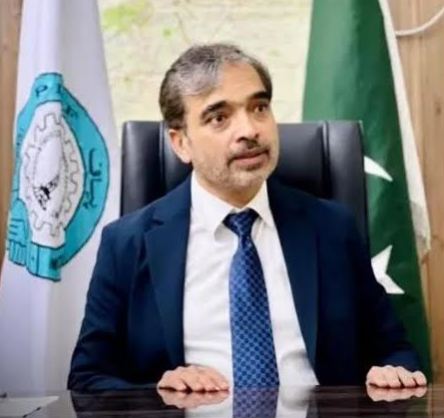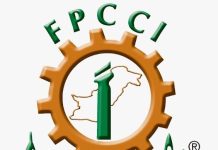Faheem Saigol warns Pakistan’s economic backbone faces deep crisis
LAHORE, AUG 24 /DNA/ – The Pakistan Industrial and Traders Associations Front (PIAF) has raised a strong alarm over the collapse of the country’s once-thriving cotton industry, warning that Pakistan’s economic backbone faces a deep crisis as cotton output has plunged from 14 million bales to barely four million in recent years.
PIAF Chairman Faheemur Rehman Saigol, senior vice chairman Nasrullah Mughal and vice chairman Tahir Manzoor Chaudhary, in a statement stressed that reviving the cotton sector must be treated as a national emergency. He warned that without immediate corrective steps, Pakistan would lose not only a vital cash crop but also the foundation of its textile and export-based economy.
“We cannot afford to let our cotton industry collapse. It is not just about farmers; it is about the entire value chain from ginners to spinners to exporters. Cotton has always been the lifeline of our economy, and its downfall has left a damaging impact on industrial competitiveness, employment, and foreign exchange earnings,” Faheem Saigol said. He added that Pakistan’s textile industry, which contributes the largest share to the country’s exports, cannot survive without a strong domestic cotton base.
The PIAF chairman highlighted that the cotton crisis is not just a seasonal or weather-driven problem but the result of years of neglect, outdated farming practices, and lack of research-based solutions. He urged the government to introduce modern technology, strengthen agricultural universities, and invest in high-yield, pest-resistant seed development to boost productivity.
“Pakistan is an agrarian economy. Any investment in cotton, livestock, or allied agricultural sectors is directly an investment in national growth. We have to understand that without strengthening agriculture, industrial recovery will remain a dream,” Saigol remarked.
Senior Vice Chairman of PIAF Nasrullah Mughal added that Pakistan must look towards international cooperation and technology transfer to regain its lost strength in cotton production. Referring to bilateral training programmes and international partnerships, he said that learning advanced farming techniques and research applications could prove transformative for local farmers.
“We need to equip our young professionals with the latest agricultural knowledge. Skilled manpower in farming and cotton research can make the difference between decline and revival. Just as countries like China have shown remarkable innovation in agriculture, Pakistan must replicate similar practices to unlock the true potential of its cotton and livestock sectors,” the Senior Vice Chairman said.
Vice chairman Tahir Manzoor Chaudhary observed that the cotton crisis has a direct impact on employment, as millions of workers are tied to agriculture and textile value chains. “Every decline in cotton output translates into job losses, reduced industrial output, and shrinking export earnings. The government must see this as a national security issue, not just an agricultural one,” he warned.
Faheem Saigol called for research-driven cooperation between Pakistan’s provinces, noting that Punjab, Sindh, Balochistan, Khyber Pakhtunkhwa, Gilgit-Baltistan, and Azad Jammu & Kashmir could all contribute to a diversified cotton and livestock revival strategy.
The PIAF chairman said that while Pakistan had achieved a measure of macroeconomic stability with improved foreign exchange reserves and modest GDP growth, long-term progress would not be possible without addressing the structural weaknesses in agriculture. “We cannot build sustainable economic growth on imports. Revival of cotton is the most effective way to ensure industrial strength, export growth, and rural prosperity,” he maintained.
He also appealed to international partners and donor agencies to support Pakistan’s cotton revival strategy through technical assistance and investment in research institutions.
Faheemur Rehman Saigol emphasised that PIAF and its member associations are ready to extend full cooperation to the government in policy reforms, technology adoption, and industrial support for agriculture. “The time for half-hearted measures is over. If we fail to revive cotton now, Pakistan’s economy will face long-lasting consequences. But if we succeed, it will unleash a new era of growth, jobs, and exports for the country,” he said.

















